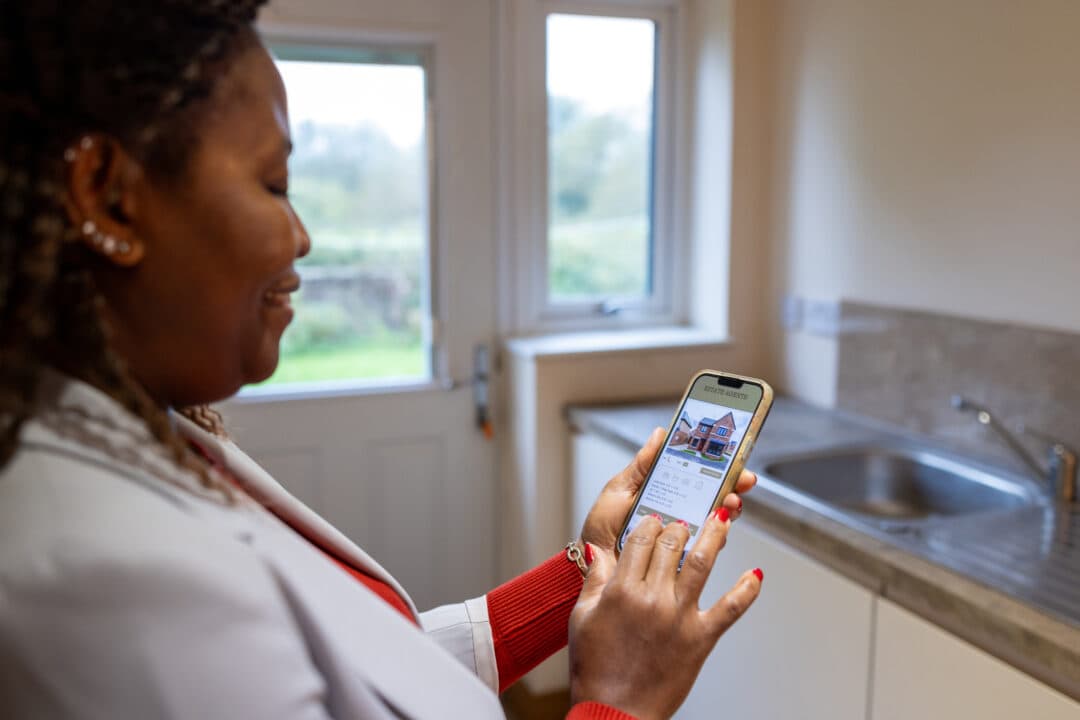Auctions: a first-timer’s guide

Property auctions are open to all buyers and sellers – and you’ll find all sorts of property for sale. Viewber reveals the many benefits of the auction method.
Even if you’ve never watched an episode of the TV show Homes Under the Hammer, most know what a property auction is. Traditionally, buyers cram into a room while an auctioneer uses their gavel to seal a deal. Of late, auctions have also moved online giving purchasers the perk of bidding from the comfort of their sofa and granting a degree of privacy if they lack the confidence to attend in person.
One myth that has persisted, however, is that auctions are the domain of property investors, landlords and builders. It’s simply not true and to illustrate, why not read about the auction buying success enjoyed by first-time buyers and second steppers on the Wirral?
Other misconceptions include the notion that auction catalogues are full of run down properties that make good ‘doer up’ projects, or that you need to be a cash buyer to use auctions. Neither is true, as beautifully finished homes sell at auction too and purchases can also be funded by a mortgage.
If you are new to the auction experience, there are some differences compared to using an estate agent – these may actually suit your situation better than using the traditional home moving, or private treaty, route.
The main difference? Instant exchange
While weeks may pass between getting an offer accepted via an estate agent and exchange, when you successfully bid on an auction property, exchange happens when the gavel falls – I.e. the sale will become legally binding before you have even left the auction house. There are other differences and benefits too, as Viewber explains below…
If you’re a first-time auction buyer
– Sign up for info: auction houses will advance-release auction dates and catalogues for buyers to peruse. Register your details directly with auction houses so you don’t miss the data, time and the list of ‘lots’ – the term given to each property.
– Arrange a viewing: if a property catches your eye, ask for a viewing. If you can’t make the auctioneer’s suggested time (they often offer rigid ‘block’ viewings on just one day), why not send a Viewber to tour the property, take photos/videos and file a report on your behalf?
– Set a budget: if there’s competition on the day, you may act irrationally and pay more for a property than it is actually worth. If you think you may get carried away, you can nominate someone, such as a solicitor, to bid on your behalf. This is known as bidding by proxy and you can set a maximum bid that they must not exceed.
– Be ready with your deposit: the auctioneer will demand you pay a deposit equal to 10% of the agreed sale price as soon as exchange takes place – usually payable by bank transfer, banker’s draft or debit card.
– Provide ID & mortgage evidence: if you have every intention of bidding to purchase, the auctioneer will require two forms of ID. And if you are using a mortgage to finance your purchase, you’ll need evidence of your agreement in principle.
– Expect to complete in a matter of weeks: the beauty of auction purchases is they don’t drag. Buyers usually have between 14 days to 6 weeks to complete and pay the remaining balance of the purchase price.
– It may not be over… until it’s over: properties will remain unsold if the reserve price – the minimum amount a seller will accept – is not met. In these cases, a potential buyer can ask the auctioneer if the lot is available to buy privately – it’s best to ask this immediately after the auction.
If you’re a first-time auction seller
– Boost your chances of selling: research published by OpenOnline suggests that 75 to 85% of all lots sell when submitted via the auction format.
– Set a reserve price: if you have a selling figure in mind and are not prepared to accept a penny less, your auctioneer can set a reserve price for you. This ensures only bids above this fixed threshold are considered.
– Conclude your sale super quickly: as well as exchanging contracts on the day, some auction purchasers buy with cash, so sellers don’t have to wait for a mortgage stage to conclude.
– Have your legal pack ready: what also makes auction sales so speedy is the presence of a pre-completed legal pack. As a seller, you will need to appoint a solicitor to undertake this preparation and other conveyancing aspects well ahead of the auction.
– Expect to pay fees: the auction house will charge for its sales service. The fee is usually around 2%-3% of the property’s sold price, plus VAT, and there may be a catalogue entry fee. You can ask about a ‘no sale, no fee’ arrangement to avoid unnecessary costs.
– You can take a second bite of the cherry: if your property doesn’t sell, you can offer your unsold lot to interested parties after the auction, inviting ‘best and final’ offers. If this still doesn’t produce your desired sales figure, you can relist your property in a subsequent auction.
Are you an auctioneer?
If you’re planning to operate open-house events or block viewings when safe to do so, Viewbers can staff these to ensure details are taken, safety is maintained and the property secured at the end of the event. Ask us for further details.




